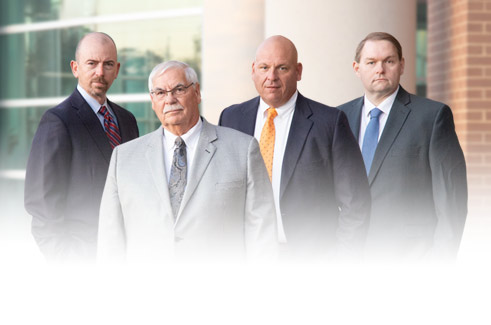We all have a duty to keep ourselves, our families, our neighbors, and our communities safe right now. This means temporarily reshaping the way we live our lives to combat the novel coronavirus (COVID-19). At Morgan, Collins, Yeast & Salyer, we are taking this duty seriously and are practicing the “social distancing” guidelines recommended by health officials. To ensure you still have access to us, our lawyers are available to meet with you remotely so we can answer your legal questions and discuss your case.
Across the nation, people are limiting in-person contact as much as possible to help slow the spread of the virus and allow our healthcare system to operate within its capacity. The U.S. Centers for Disease Control and Prevention continues to provide important guidance about what we all can do to protect ourselves and others from exposure. (Visit the CDC website for the most up-to-date information and recommendations.)
During this challenging time, our attorneys remain available to talk about your legal issues over the phone or via free video conferencing services such as:
- GoToMeeting
- Facetime
- Skype
- Zoom
If you are ready to speak with a lawyer now, please contact us to schedule your free consultation. Our team can meet with you remotely and get started on your case immediately without having to talk in person.
COVID 19 Prevention: Social Distancing
Health officials are recommending “social distancing” measures to cut down on close contact. This will help minimize the spread of the Coronavirus (COVID-19). Please make sure you review the Centers for Disease Control and Prevention (CDC) for more information about other steps you can take to protect yourself and others from exposure to this virus.
General Info About (COVID-19)
More and more information about the virus is coming out daily. Please stay up to date on information and symptoms by checking the CDC’s website.
This virus spreads easily and sustainably! You can get COVID-19 “by touching a surface or object that has the virus on it and then touching your mouth, nose, or eyes.” It is thought that you are most contagious when you are displaying symptoms, however, you can be contagious before you even show symptoms.
Symptoms of Coronavirus
Here are some of the major symptoms of the virus:
- Respiratory Tract Infection – shortness of breath
- Fever/chills
- Cough
- Flu-like symptoms
- Fatigue
- Pressure in the Chest
- Headaches
- Muscle or Body Aches
- Sore Throat
Please note that carriers of the virus may not be displaying symptoms and that you are still at risk and may be carrying the virus and not know unless you are tested.
Contact Morgan, Collins, Yeast & Salyer
If you were hurt in an accident and are seeking legal help, let the attorneys at Morgan, Collins, Yeast & Salyer help you – in the comfort of your own home! If you would like to discuss your legal issues with any one of our attorneys, we can simply meet with you by phone.
Contact us now at (606) 598-2122 to schedule your free consultation and learn more about how we can meet with you remotely to review your claim.
The post Concerned About Coronavirus? You Don’t Need to Leave the House to Meet with Our Lawyers. appeared first on Morgan, Collins, Yeast & Salyer.
from Morgan, Collins, Yeast & Salyer https://www.kentuckycourage.com/blog/covid-19-coronavirus-update/
via https://www.kentuckycourage.com

 needed to appeal a disputed workers’ compensation claim. We will fight for your rights because we understand the outcome of your claim can affect the quality of your life for the years ahead. We’ll focus on seeking the maximum benefits available under the law.
needed to appeal a disputed workers’ compensation claim. We will fight for your rights because we understand the outcome of your claim can affect the quality of your life for the years ahead. We’ll focus on seeking the maximum benefits available under the law.
